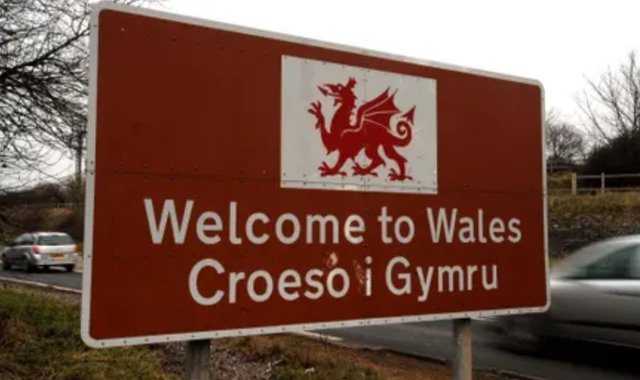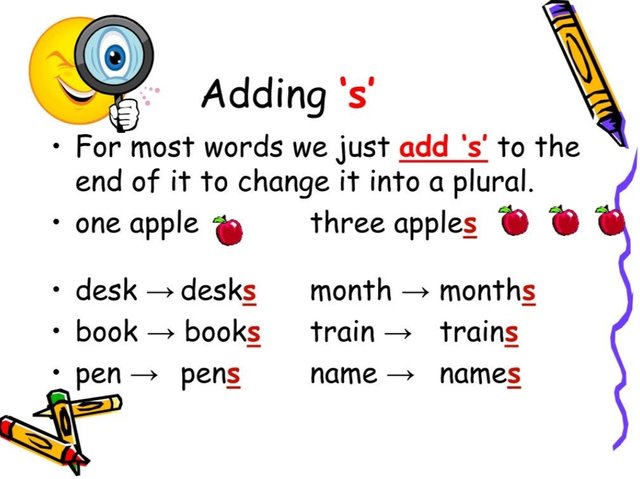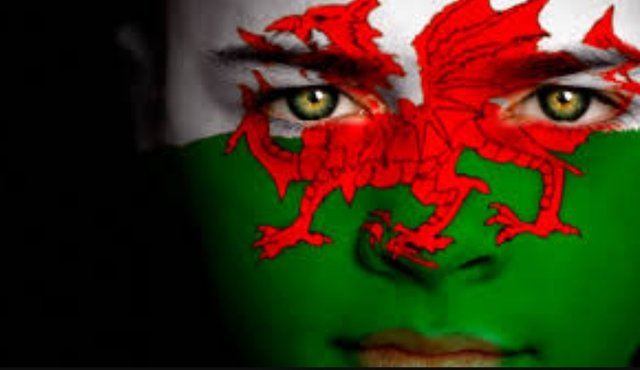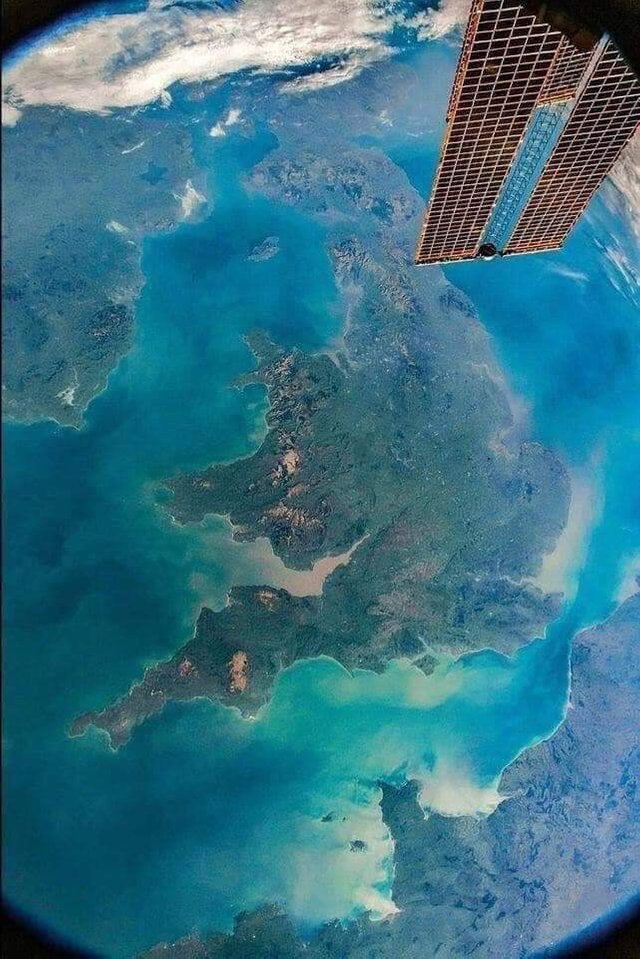WELSH - An uncommon Language: How the Welsh and English language differ

As I normally do every day, I've been catching up on local news, and interesting stories. When I came across this article, on the BBC website, about a 90yr old Welsh lady living in the USA, who hasn't spoken Welsh for almost 40yrs. Because of this Covid-19 virus and lockdown, and thanks to the power of social media, she was able to connect with someone for a chat(in Welsh). Read the actual story HERE

An elderly Welsh woman now living in the United States has spoken Welsh for the first time in 40 years after a lockdown social media appeal
Well, as a Welsh speaker myself, it got me thinking about how the Welsh and English languages differ and how they relate to each other.
Growing up in a small Welsh village, at the foothills of the Welsh coal valleys, I spoke Welsh everyday. I attended a Welsh speaking school, and the friends I grew up with spoke Welsh too. So you can imagine the fun I had growing up, having to learn two languages, Welsh was spoken within my close circle, and for EVERYTHING else it was English....
This is an intriguing grammatical fact - In the languages of the world (generally), plural forms of nouns are normally derived from, and more often than not longer than, singular forms.
A noun is a word that functions as the name of some specific thing or set of things, such as living creatures, objects, places, actions, qualities, states of existence, or ideas.

The English word trees is derived from tree, by the addition of plural - "s". German Bäume (‘trees’) is obviously derived from Baum (‘tree’) as is Dutch bomen from bom, and Spanish árboles from árbol.
But, in the same unusual way, in Welsh:
- pluen, ‘feather’, is derived from the plural plu, ‘feathers’
- seren, ‘star’, comes from sêr, ‘stars’
- and deilen, ‘leaf’ is clearly based on dail, ‘leaves’.
Things seem to be the ‘wrong’ way round!! The singular forms are longer than the plural forms, and seemingly derived from them. Weird hey?? Well, it only gets weirder from here....
In fact Welsh is not really so very different from English, German, Dutch or Spanish. Most Welsh plurals are actually derived from singulars.
- Llyfr, ‘book’, has the plural form llyfrau, ‘books’
- pensil, ‘pencil’, has the plural pensiliau
- and the plural of trên, ‘train’, is trenau.
But Welsh does have the capacity to make a very interesting grammatical distinction which is not available in English. To call Welsh forms such as coeden and coed ‘singular’ and ‘plural’ is really not the correct analysis. Coed (‘trees’), plu (‘feathers’), sêr (‘stars’), and deil (‘leaves’) are better described as “collective” nouns. Coeden, pluen, seren and deilen, the longer words which are derived from them, can be described as “unitary” or “singulative” forms.

A coeden, ‘tree’, is an individual instance of the collective phenomenon signified by the term coed– which could just as well be translated into English as ‘wood’ – a wood is after all a collection of trees.
Plu could similarly be translated as ‘plumage’: a bird’s plumage is made up of its feathers.
And deil could very well be rendered as ‘foliage’ – foliage does consist of leaves.
I can’t, though, think of a satisfactory translation for the collective noun which corresponds to the singulative mochyn, ‘pig’, other than to say that moch means ‘pigs’.

Welsh is the earliest language that we know of in Britain. Its ancestor, Brittonic Celtic, seems to have been the island’s only tongue for very many hundreds of years indeed, until it was joined, temporarily as it turned out, by the Latin which arrived with the Roman invasion of AD 43. Then, in the 5th century AD, it was joined on a much more long-term basis in the northwest of Britain by Gaelic, which arrived from Ireland; and elsewhere on the island by English, arriving from continental Europe.

Gaelic and Welsh are quite closely related Celtic languages, but English and Welsh are only very distantly historically connected. Being able to speak English gives you NO - NONE - ZIP - ZERO help at all with the learning of Welsh, nor vice versa, as I found out growing up.
After 1,500 years of co-existence on the same rather small island, these two languages are still highly dissimilar in many ways.
A grammatical characteristic of Welsh which illustrates this point rather nicely is one which it shares with Gaelic and other Celtic languages such as Breton. In English, most grammatical transformations to words take place at the end of the word:
- cat to cats
- children to children’s
- walk to walked
- sing to singing.
This is true of Welsh as well, as we just saw with llyfr and llyfrau (book to books), but Welsh can also carry out grammatical operations by alterations to the beginning of words.
In Welsh, ‘dog’ is ci, but ‘her dog’ is ei chi and ‘his dog’ is ei gi.
You have to understand how these initial “mutations”, as they are called, work before you can be confident about looking up a word in a dictionary. It’s no use trying to find nghar, gar or char in most Welsh dictionaries because they are all mutated forms of the word car meaning ummmm..... 'car’.
I hope this quick walk through gave you some understanding of the Welsh language, and that my attempt to try and explain a few simple differences was clear enough??
My brain is fried now, and I'm off to bed.
Ok adding new knowledge today. It is incredible that 2 languages are spoken on an island and they do not speak the same branch. For example in Trinidad and Tobago people speak 3 languages, Spanish, French and English. But the first 2 are from Latin. Thanks for showing me a little bit of your language. Have a good day :)
I found out some interesting linguistic facts, thanks!
Your wonderful article just tells me that English is an absolutely illogical language.
You said that wood is a collection of trees, but a tree is made of wood. So a tree is made of a collection of trees.
And they say that Portuguese is a difficult language...
!trdo
Congratulations @ronaldoavelino, you successfuly trended the post shared by @welshstacker!
@welshstacker will receive 0.90052763 TRDO & @ronaldoavelino will get 0.60035175 TRDO curation in 3 Days from Post Created Date!
"Call TRDO, Your Comment Worth Something!"
To view or trade TRDO go to steem-engine.com
Join TRDO Discord Channel or Join TRDO Web Site
Congratulations @welshstacker, your post successfully recieved 0.90052763 TRDO from below listed TRENDO callers:
To view or trade TRDO go to steem-engine.com
Join TRDO Discord Channel or Join TRDO Web Site